Meet the community still obsessing over Mass Effect 2 10 years later
From cosplay and podcasts to mods and speedruns, the ME2 community rolls on.
by Cian MaherIs Mass Effect 2 the series’ golden goose or its ugly duckling? As the game passes its 10th anniversary this year, the debate rages on. Many space cadets recall their time with the game through a lens of utmost fondness, while others contend its status as the most detached and defunct entry in BioWare’s illustrious trilogy (Andromeda, for all its pluses and minuses, is usually not part of the same discussion).
Regardless, a decade after its release, folks from all walks of life cling to Mass Effect 2 and the events surrounding it like a vice grip, continuing to invest time, effort, and money in the maintenance of their interest long after BioWare announced its plans to discontinue the series indefinitely.
Space dress-up
Cosplayer Felicia “spacelioncosplay” Neely cites the characters and “epic story” as the elements of Mass Effect she initially gravitated toward. “BioWare has the ability to write these wonderfully complex and thought-provoking characters that surprise us with their relatability, inspire us with their actions, and sometimes divide us and break our hearts in the end,” she tells me. “You cannot help but fall more in love with them during each replay—especially Garrus, hey!”
It was these components that convinced Neely to cultivate her passion for costuming in the first place. “I was beginning to feel like maybe cosplay was a phase for me rather than a passion,” she explained. Then she played Mass Effect 2.
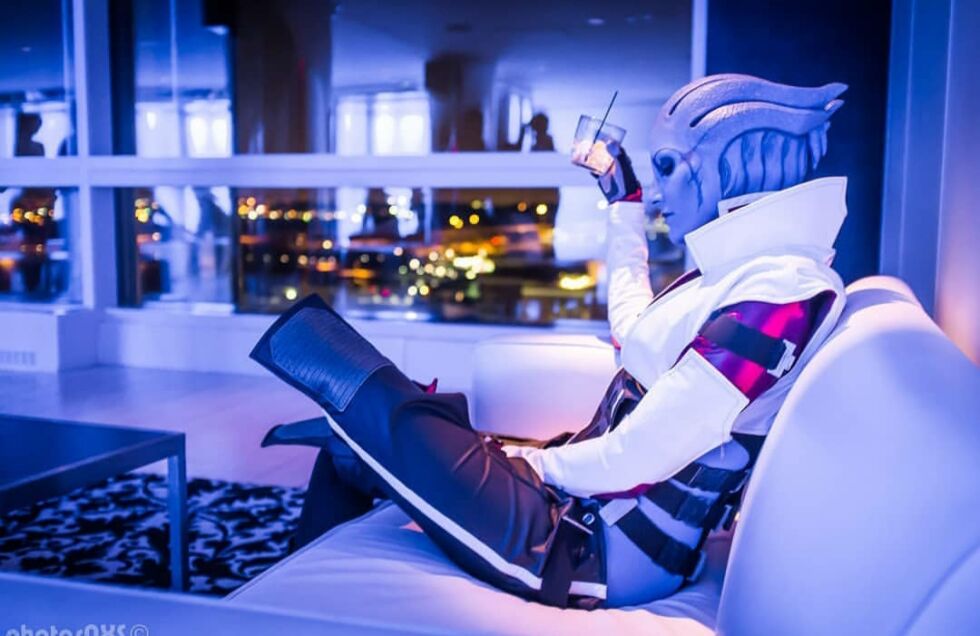
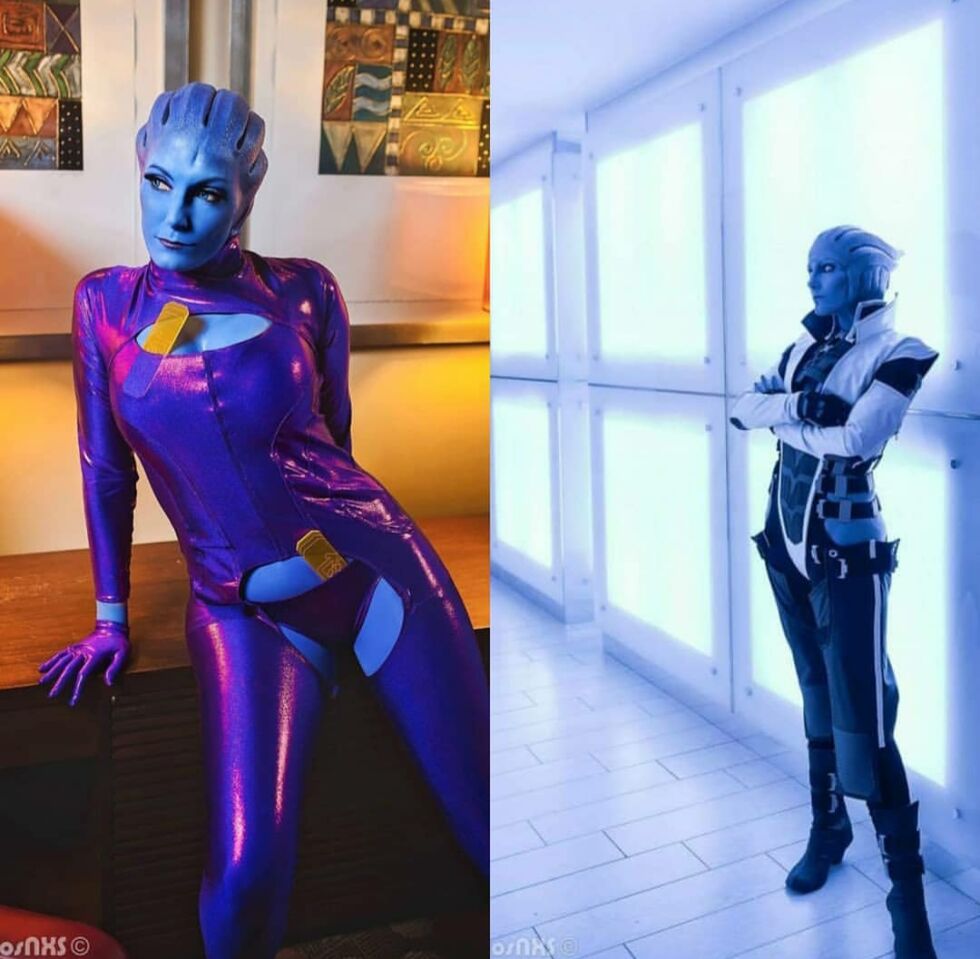
“The beautiful aesthetic of the clothing and armor lit a fire inside me like no series ever had,” she adds. “There was such a wide range of textures and materials and finishes on each character’s outfit—I had to make something from it! I have always loved the asari: beautiful, deadly, powerful. To me, Aria T’Loak is easily the most badass asari around, so it was an easy choice for me when I decided that I wanted to bring The Pirate Queen of Omega to life.”
This was no easy task: Neely had to begin by taking hundreds of screenshots in order to assess exactly how an Aria T’Loak costume would even look. She also watched scenes that displayed the clothing from different angles in order to gain an understanding of how the materials moved and looked in different lighting. Once she had a solid plan, she began the patterning process, referencing real-world articles of clothing while creating all of her own components from scratch.
Naturally, getting body paint to capture an accurate blue asari skin tone proved challenging. “I ended up using pax paint—a combination of a medical-grade adhesive and non-toxic acrylic paint that gives the paint enough elasticity to stick to your skin without flaking or cracking,” she tells me. The painting process alone takes two hours, because the paint needs to be applied in thin layers to achieve the correct look. “On my chest, neck, and face, I used a combination of Ben Nye creme colors, Kryolan Aquacolor, eyeshadows, and lipsticks for contouring,” she said.
Neely explains that this is only one small section of what was ultimately an odyssey. The countless hours of work were worth it, though, for a “final product that I was really proud of and felt great in.”
Going for speed
Fabian “tentaclepie” Sundberg has also invested a remarkable amount of time pursuing his passion for Mass Effect 2. Since 2014 alone, he has pumped about 350 hours into speedrunning the game, and he currently holds three speedrunning records on player-run leaderboards.
After playing through the first two games in the series ahead of Mass Effect 3’s highly anticipated launch, Sundberg said he was struck by the drastic improvements to combat, animation, and character writing he found in the second installment. “I liked the game so much I skipped school to play,” he explains in a recent interview with Ars Technica.
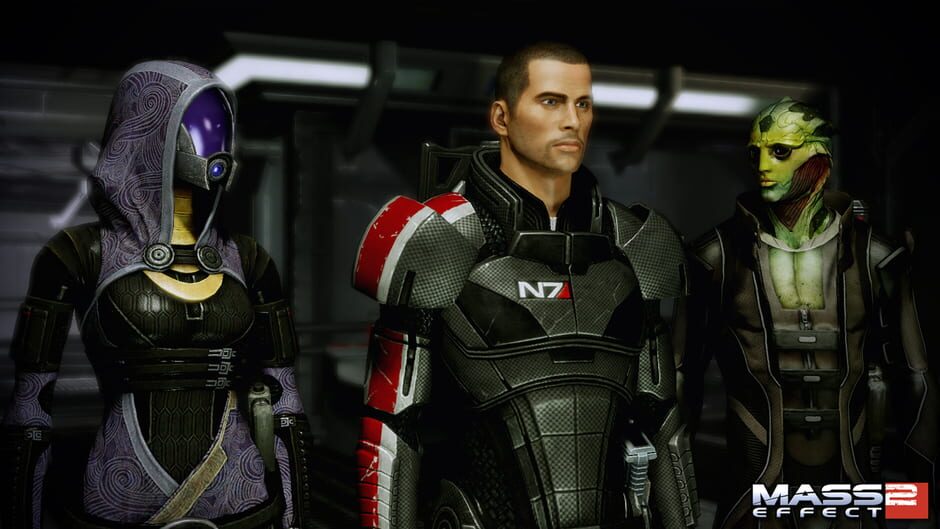
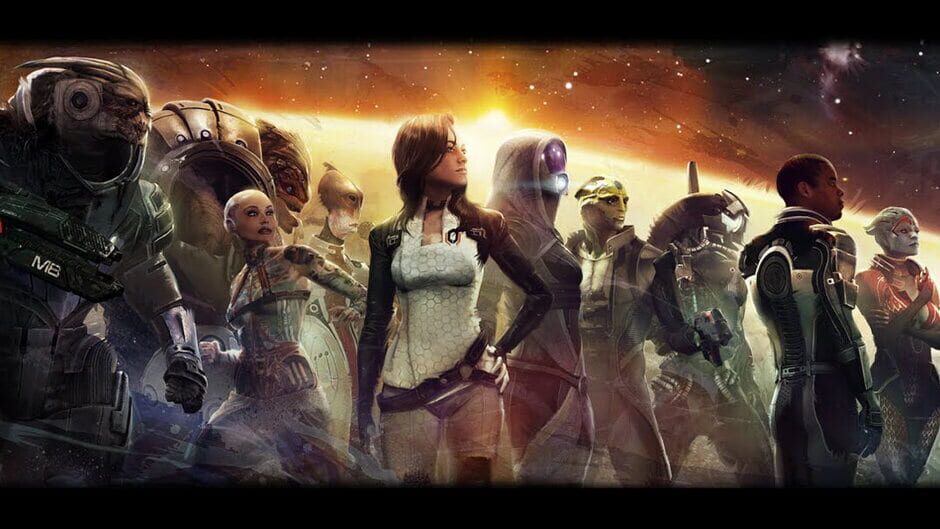
Sundberg has had a huge and direct influence on Mass Effect 2’s speedrunning community, discovering “skips” that effectively break the game’s intended flow to allow for faster play times. In one particular case, Sundberg spent over 10 hours trying to find a consistent method for a new skip that involved lining up a certain angle to get past a slow-loading elevator section. He could get it to work sometimes, but there was no rhyme or reason to the success or failure; it seemed random.
“I couldn't find anything until I had the dumb idea that I should just aim into the sun,” he explains. “Bam. Worked 99 percent of the time.”
While this is the only substantial skip Sundberg says he found himself, he makes use of techniques uncovered by fellow speedrunners like Emilio and Strife in improving his own performance. “I [just] focused on getting better times and grinding it out.”
The mod squad
Sundberg notes that speedrunners used to have to sit through 10 minutes of cutscenes at the beginning of the game, until a load remover was eventually added by modders about two years ago. One such modder, Mgamerz, has played a particularly significant role in the Mass Effect 2 modding community since the release of Mass Effect 3 spawned a new wave of mods for the previous game.
Similarly to Sundberg, Mgamerz first experienced Mass Effect 2 about a week before the trilogy’s highly anticipated denouement. Mgamerz remembers Mass Effect 2 drastically improving on its predecessor, which was excellent at its narrative core but ultimately pretty dated. He also recalls failing to complete some of the second game’s side quests ahead of its iconic suicide mission, resulting in the deaths of many crew members and a particularly dramatic transition to Mass Effect 3.
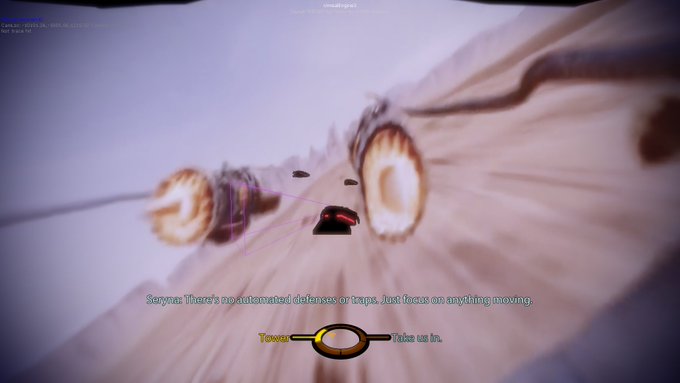
“I don't play through the games like most people, since I dig around in the internals often,” Mgamerz explains. However, he’s sure to play through the series in its entirety every couple of years, primarily to look for new mechanics and items to mod. For example, he sometimes studies how conversation stages are choreographed by wrenching the camera away from its intended position.
Although Mgamerz experiments with all three Mass Effect games, he maintains that the series’ second episode is a bit of an anomaly. “Mass Effect 2 is a great game as a whole,” he explains, “but not 100 percent in line with the plot of the other two games.”
Let’s talk about it
Kenneth Shepard—who co-hosts the Normandy FM podcast—can definitely identify with that sentiment. “It was N7 Day 2018 when I jokingly tweeted out that I wanted to make a Mass Effect podcast going over the minutiae of basically everything,” he tells me. “An episode per mission or group of missions to discuss things as large as the major choices in each game to the smaller details you can't really dedicate time to in any other format.”
Shepard explains that he had never been as excited for a game as he was for Mass Effect 2. After it eventually launched, it usurped the original as his favorite game of all time—although this exact process repeated itself when the trilogy’s final chapter arrived two years later.
But he also said there are issues with Mass Effect 2 that are often glossed over when viewed via nostalgia-tinted glasses. “Mass Effect 2 is a hard game to talk about because the mainstream consciousness has dubbed it the best game in the series, and it's difficult to get people to consider any alternative,” Shepard said. “It's aged [more] poorly than any other game in the series in how it frames Shepard as a self-insert character. For all its touting of player choice and expression, ME2 makes calculated decisions to exclude queer people, men especially, and most people just skip over that.“
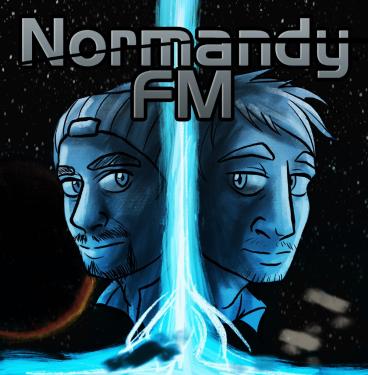
“It's a deeply heteronormative game that treats male intimacy as a thing that doesn't exist in its universe and female intimacy as a thing that only exists in secret between Shepard and her secretary,” he continued.
Shepherd thinks these omissions were less noticeable when the game was released in 2010, a time when mainstream game developers were far less inclined to champion diversity. “I think the way it established some extremely poor values in a universe about diversity and inclusivity has been forgotten because everyone is still in awe of the admittedly excellent suicide mission. I love each of the Mass Effect games, but especially after replaying and dissecting them on the show, the ways in which it felt like [Mass Effect 2] was actively trying to push me out has stuck with me more than a lot of its strong suits in the long run.”
Shepard still holds the series as a whole in high esteem, though, and notes how many guests he’s been able to find who have a similar investment and critical eye for Mass Effect. “It's also been great having people reach out and follow the show telling us how much they appreciate that something like it exists,” he adds. “There's a lot of passion for this series that has lived on over the years, and a willingness to be critical of a thing we all love.”
“None of us are doing this to tear the game down,” he continues. “We do it because we want them to be better. It's a small community, but it's encouraging to see people care enough about what you're doing to listen every week.”
Even among some of Mass Effect 2’s most devoted fans, opinions vary on how the game holds up. Neely maintains that it’s one of her favorite games of all time, whereas Shepard acknowledges that although he loves each of the Mass Effect games, Mass Effect 2 is his least favorite. Mgamerz said he mainly returns to investigate the experimental ways he can tinker with the code under the hood, whereas Sundberg said that he rarely plays it for the story anymore, instead opting to speedrun it out of pure love for the game without a desire for repeating the skippable cutscenes.
Regardless, these four players are representative of the significant place Mass Effect 2 continues to hold in the hearts of millions, even 10 years later. That the game is played, remembered, and continues to serve as the root and cause of myriad passions pursued by its fans just highlights the void left vacant by BioWare’s lack of concrete plans for the future of the series.
Listing image by @photosnxs